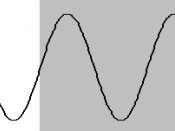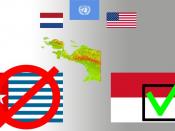The problem of free choice is in essence a fundamental question of whether we have the ability to make choices or not? Though the answer may seem simple at first glance, the answer is much more complicated than it may intuitively seem. To support this claim, although this problem can be traced back to the Greek and Roman era, today it remains in virtually the same state as it did back then, and is still without an adequate solution. Therefore, in this essay I am not attempting to make the rather bold statement of offering a solution to the problem of free choice, but rather, to offer a description of two main contemporary positions in the problem - which will be determinism and compatibalism - and to state which position I find more attractive, and the reasons as to why I am attracted to it.
Before a description of the two positions however, there must be a mutual understanding of what exactly the problem of free choice involves; and in order to do this, we must understand the notion of a free choice.
For the sake of clarity, I will emphasize that choice by its very definition is free; thus, free choice, and choice can be used synonymously. The notion of choice in its most general form would be something like "a decision such that up moment it was made, another decision could have been made and which decision is made is up to the person making it" (Brooke & Stainton 136). We must note that this definition is only a working definition, rather than a concrete one, because the idea that 'another decision could have been made' is just as unclear as the notion of choice itself. However, this definition serves useful as a basic guideline, and any ambiguities...


